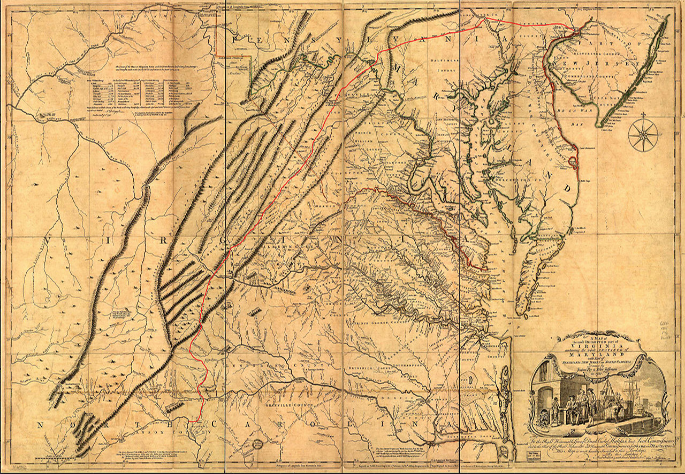NOTES ON THE STATE OF VIRGINIA: Journey to the Center of an American Document, Query XIV

This is the seventh installment of a year-long journey through Thomas Jefferson’s Notes on the State of Virginia.
**
Query XIV: The administration of justice and the description of the laws
We’ve reached the section of Notes I dread the most. It’s also the query I’ve spent more time contemplating than any other. Here, at the center of the book, right after Jefferson lists the establishment of religious freedom as one of America’s most important legal principles, and right before he proposes “laying out a certain sum annually” to fund a national library, he makes his infamous case for slavery in his time. To read Query XIV in 2016 is to glimpse the terrible shape of our nation’s original sin. White supremacy is the lens that darkens Jefferson’s otherwise luminous American vision.
I can’t stop reading Query XIV.
It’s easy to dismiss the document for its rationalization of slavery, and to critique Jefferson for his seeming hypocrisy in making such arguments. We now know that he created a mixed-race family with his own slave, Sally Hemings, and that members of the Hemings family were some of the only slaves he ever freed. The attitudes that Jefferson espouses in Query XIV are offensive, even repellent to the contemporary reader. Here, he gazes at the black body and pronounces it ugly, inelegant, and suited only for physical labor. When I first read this part of Notes as an adolescent, I turned away in hurt and sorrow from sentences like these:
They [black men] are more ardent after their female: but love seems with them to be more an eager desire, than a tender delicate mixture of sentiment and sensation. Their griefs are transient. Those numberless afflictions, which render it doubtful whether heaven has given life to us in mercy or in wrath, are less felt, and sooner forgotten with them.
Today, my challenge in reading the query is one of empathy. As a woman poet of color with ancestral roots in central Virginia, I want my own reading practice to counter Jefferson’s presumption, the glib way he dismisses his slaves’ interior lives. This transgression, I think, is at the core of Jefferson’s offense in Query XIV, and why its language draws me back to Notes. “Their griefs are transient,” Jefferson remarks, and I imagine enslaved families parted forever through sale. “Those numberless afflictions…are less felt, and sooner forgotten with them.” Jefferson claims to know what black people feel. More than that, he claims to know how intense those feelings are when compared to the emotional lives of whites. Ever the scientist, he pours each of his observations into a test tube, swirling the solutions, taking their measures. He trusts the logic of his own conclusions and seems unwilling to acknowledge how deeply his prejudices have compromised his arguments.
Basically, Query XIV is a poet’s nightmare.
One of the reasons I began this series is to consider the value that reading Notes may hold for poets. Jefferson doesn’t produce this document for the purposes of literature, but several of his rhetorical strategies also appear within the forms and modes of verse. In reading Query XIV, I’m struck by the ethical implications of Jefferson’s choice to comment so closely on the inner lives of enslaved people. While he doesn’t write from an enslaved perspective per se, he purports to know this perspective, intimately. He uses language to reinforce the power he holds as a prominent member of his society. The modalities of poetry also reflect and enact dynamics of social power. A poet’s choice of form carries with it serious ethical considerations.
If “writing the other” is one project of contemporary poetry, then persona is a compelling compositional tool. In a persona poem, the poet adopts a point-of-view that is, in some way, separate from him or herself. In The Dream Songs, for example, John Berryman assumes an alter ego called “Henry,” an enigmatic speaker who narrates Berryman’s series of waking visions. “Henry is accused of being me and I am accused of being Henry and I deny it and nobody believes me,” Berryman remarked in 1970. Contemporary poets know that writerly subjectivity is contingent, conditional. Slippage can be fun. Moving into someone else’s voice, or into another version of your own, can be generative of language that may create surprising collisions and discoveries in a poem. The dark, oracular speaker of Sylvia Plath’s “Lady Lazarus” is a version of Plath herself, but heightened somehow, made otherworldly in commanding lines like:
Peel off the napkin
O my enemy.
Do I terrify–?
But writing in persona presents ethical problems, as well. Every time I attempt to write from the perspective of another, I encounter a vital test. How can I render my chosen subject in a way that honors the humanity of the other? How do I imagine myself into the complex interiority of someone else without exploiting them in service of my own imagination? The issue is especially fraught when the poet chooses to depict the experience of a real person, especially someone from a vulnerable population. One of my favorite, more recent, projects in persona poetry is Natasha Trethewey’s 2002 book, Belocq’s Ophelia. These linked poems launch from the poet’s contemplation of a series of turn-of-the-century photographs of “mulatto” New Orleans prostitutes. Trethewey’s poems imagine a life for one of them, moving virtuosically through multiple poetic forms: the letter, the ekphrastic poem, the dramatic monologue. Consider how all of these modalities are simultaneously operative in these lines from “Storyville Diary, Photography 1911”:
I pose nude for this photograph, awkward,
one arm folded behind my back, the other
limp at my side. Seated, I raise my chin,
my back so straight I imagine the bones
separating in my spine, my neck lengthening
like evening shadow. When I see this plate
I try to recall what I was thinking—
how not to be exposed, though naked, how
to wear skin like a garment, seamless.
It’s this layering of forms and modes that makes Trethewey’s poem such a successful experiment in persona. Paradoxically, the artifice of the diary entry—in practical terms, it’s a kind of monologue—enables Ophelia’s voice to emerge with emotive richness. We watch Ophelia viewing the photographic plate, which contains the image of her own exposed neck. As readers, we participate in the experience of Ophelia’s bodily vulnerability and in her contemplation of what that vulnerability means to her. In other words, we get to watch Ophelia being watched, and then we watch her watch herself. When I read this poem, I’m always aware that I’m reading a piece of language that was crafted with intention. Trethewey writes a persona poem that engages the complexities of human subjectivity. Her goal is not to rewrite Storyville history or to reduce it to one woman’s tale, but to make us think about how racial identity is a collision of internal and external realities. It’s a poem that invites us to read with empathy.
When we read Query XIV, we need to apply empathy to Jefferson and to the slaves he describes. What was it like to be a slave in Virginia during Jefferson’s time? What was that internal reality? These are questions that Jefferson doesn’t think he has to ask himself in Query XIV. Slavery already had existed in Virginia for over a century by the time Jefferson was born. This economic system had brought prosperity to white planting families like Jefferson’s own, even as it continually dehumanized the people who produced Virginia’s wealth. It was an inherently exploitative enterprise that succeeded by denying the humanity of the enslaved. Jefferson historian Annette Gordon-Reed writes:
In that more literally minded age, surface appearances were what counted, and the various shades of black told Anglo-Virginians everything they thought they needed to know about who could be a slave and who could not (emphasis mine).
When he sat down to write Query XIV, Jefferson thought he knew all that he needed to know about black people. And when we read the document today, we think we know everything we need to know about Jefferson and his motivations. But reading with empathy, and writing with empathy, means admitting that we can never fully occupy someone else’s subjectivity. Literature gives us the chance to flex our imaginations and recognize our shared humanity, and the best literature makes us vulnerable enough to question what we think we know. When Jefferson makes claims about what black people feel, what they believe, and how they live, he’s making assumptions that come from his own racial biases. At the same time, I can’t condemn Notes wholesale for the attitudes it contains, hurtful as they are. Jefferson didn’t invent American racism, though he replicated the patterns he was taught. I’m currently working on some new poems about Virginia’s history, and I’ve struggled with the prospect of someday writing a persona poem in Jefferson’s voice. What would such a poem reveal—not about Jefferson, but about me?
I don’t know everything. I need to know.



